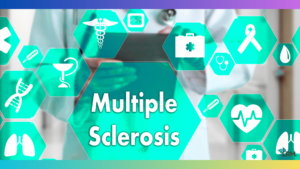Physical Address
304 North Cardinal St.
Dorchester Center, MA 02124

Multiple Sclerosis, a chronic neurological disease, can be overwhelming for those recently diagnosed. This guide provides essential information for understanding and managing the condition, helping individuals navigate their new journey effectively.
In this introduction, we will explore the key aspects of Multiple Sclerosis that newly diagnosed individuals need to be aware of, including its symptoms, causes, treatments, and lifestyle adjustments. By gaining knowledge and guidance, you can approach your diagnosis with confidence, improve your quality of life, and make informed decisions regarding your healthcare.
It is important to remember that everyone’s experience with Multiple Sclerosis is unique, and this guide aims to provide a general overview for the newly diagnosed, offering a starting point for your personal journey with this condition.
:max_bytes(150000):strip_icc()/VWH_Illustration_Tips-for-Managing-Multiple-Sclerosis-Remission_Laura-Porter_Final-5dd7025c775149f3bbef476b58246a08.jpg)
Credit: www.verywellhealth.com
If you or someone you know has recently been diagnosed with Multiple Sclerosis (MS), it’s normal to have questions and uncertainties about this chronic condition. Understanding Multiple Sclerosis and its various aspects can help you navigate the challenges ahead and make informed decisions about your health and lifestyle. In this article, we’ll explore the basics of Multiple Sclerosis, types of MS, and offer essential information to guide you through this journey.
Multiple Sclerosis is a chronic autoimmune disease that affects the central nervous system. With MS, the immune system mistakenly attacks the protective covering of nerve fibers, called myelin, in the brain and spinal cord. This damage disrupts the flow of electrical impulses between the brain and the rest of the body, leading to a wide range of symptoms and complications.
| Type | Description |
|---|---|
| Relapsing-Remitting MS (RRMS) | The most common form of MS, characterized by clearly defined relapses or flare-ups followed by periods of partial or complete recovery. |
| Secondary-Progressive MS (SPMS) | Initially, individuals with RRMS may transition into SPMS, where symptoms worsen steadily over time without distinct relapses or remissions. |
| Primary-Progressive MS (PPMS) | Characterized by a gradual progression of symptoms from the onset, without distinct relapses or remissions. |
| Progressive-Relapsing MS (PRMS) | A less common form of MS, with progressive symptoms from the beginning and occasional relapses. |
No matter the type of MS, it’s essential to work closely with healthcare professionals specializing in this condition. They can help create a personalized treatment plan to manage symptoms, slow disease progression, and enhance your overall quality of life.
Having a solid understanding of Multiple Sclerosis and its different types empowers you to make well-informed decisions about your health. Remember, each person’s experience with MS is unique, and the symptoms can vary widely. By educating yourself and seeking support, you are taking a proactive step toward managing your condition and embracing a fulfilling life despite the challenges.

Credit: www.healthline.com
Being diagnosed with Multiple Sclerosis (MS) can be overwhelming, but understanding the early symptoms and diagnostic procedures is essential for managing the condition effectively. In this guide for the newly diagnosed, we will explore the early signs of MS and the different diagnostic procedures a patient may undergo.
Early symptoms of MS can be subtle and often go unrecognized. It is important to pay attention to any changes in your body and seek medical advice if you experience any of the following:
If you notice any of these symptoms lasting for more than 24 hours or recurring frequently, it is important to consult a healthcare professional for further evaluation.
When it comes to diagnosing MS, medical professionals rely on specific diagnostic procedures to confirm the condition. The following tests are commonly performed:
These diagnostic procedures, combined with a thorough examination, help healthcare professionals determine whether you have MS and how to proceed with your treatment plan.
When faced with a diagnosis of Multiple Sclerosis (MS), understanding the available treatment options and strategies becomes of utmost importance. Navigating the complex landscape of MS management can be overwhelming, so it’s crucial to gather information and gain clarity. This guide aims to provide newly diagnosed individuals with insights into the treatment options and strategies available for managing MS effectively.
Disease-Modifying Therapies (DMTs) are at the forefront of MS treatment. They are designed to alter the course of the disease by reducing the frequency and severity of relapses and slowing the accumulation of disability over time. These therapies work by targeting the immune system and preventing it from attacking the central nervous system. DMTs come in various forms, including injectables, oral medications, and infusions, allowing for personalized treatment approaches based on individual preferences and needs.
Symptom management plays a vital role in enhancing the quality of life for individuals living with MS. From physical symptoms such as fatigue, muscle spasms, and mobility issues to cognitive challenges and emotional well-being, addressing symptoms comprehensively is essential. A multidisciplinary approach involving healthcare professionals, including neurologists, physiotherapists, occupational therapists, and psychologists, can help in tailoring a holistic symptom management plan. This plan may include medications, physical therapies, cognitive rehabilitation, and lifestyle modifications.
Receiving a diagnosis of Multiple Sclerosis (MS) can be overwhelming, but understanding and implementing certain lifestyle changes can greatly benefit your overall well-being and support your journey with MS. In this section, we will explore two key aspects of lifestyle changes and support: Diet and Exercise and Emotional and Mental Health Support.
Adopting a healthy and balanced diet can play a significant role in managing MS symptoms and promoting overall health. While there is no specific diet that has been proven to cure MS, making mindful choices can help mitigate symptoms and boost your well-being. Consider the following tips:
Alongside a healthy diet, regular exercise can help improve balance, flexibility, and overall strength, while also alleviating fatigue and promoting emotional well-being. Remember to:
Facing the challenges of MS can impact your emotional and mental well-being. It’s important to seek support and implement strategies to maintain a positive mindset. Consider the following approaches to emotional and mental health support:
Remember, making lifestyle changes and seeking support are essential components of managing MS. By implementing these strategies, you can enhance your overall well-being and feel empowered in your journey with MS.
If you have been recently diagnosed with Multiple Sclerosis, it is important to build a strong support network. Surrounding yourself with understanding friends and family can provide emotional support and practical help. Connecting with MS support groups and online communities can also offer valuable resources and a sense of belonging.
Building a Strong Support Network
Being diagnosed with Multiple Sclerosis (MS) can be overwhelming, but remember, you are not alone. Building a strong support network can provide you with the emotional and practical support you need to navigate this new chapter of your life. Whether it’s family and friends or joining MS communities, reaching out to others who understand your journey can make a world of difference. In this article, we will explore two key avenues for building your support network: family and friends support and joining MS communities.
H3: Family and Friends Support
Your loved ones can be an invaluable source of support during your MS journey. Whether it’s a shoulder to lean on or a helping hand, their presence can make a significant impact on your well-being. Here are some ways your family and friends can support you:
1. Be open and honest about your diagnosis: Share your feelings and experiences with your loved ones. This will help them understand your needs and be better equipped to support you.
2. Offer practical assistance: Daily tasks may become challenging due to the symptoms of MS. Your family and friends can lend a hand with chores, errands, or transportation, easing your burden.
3. Actively listen: Sometimes, all you need is a listening ear. Encourage your loved ones to actively listen to your concerns and fears without judgment or advice unless you ask for it.
H3: Joining MS Communities
In addition to your immediate circle, joining MS communities can provide you with a unique support system. These communities consist of individuals who understand firsthand what it’s like to live with MS. Here are some benefits of joining MS communities:
1. Shared experiences: MS communities allow you to connect with others facing similar challenges. By sharing your experiences, you can find comfort, validation, and practical advice.
2. Access to resources: MS communities often provide a wealth of resources, including educational materials, local events, and access to healthcare specialists specializing in MS.
3. Emotional support: Engaging with others in MS communities can help alleviate feelings of isolation. You can form friendships and find a sense of belonging in a community that understands your journey.
Whether it’s your family and friends or a community of fellow MS warriors, building a support network is crucial when navigating life with a new MS diagnosis. Remember, you don’t have to face this journey alone. Reach out, connect, share, and receive the support that will empower you to live your best life.

Credit: www.dvcstem.com
Here’s what to do when first diagnosed with MS: 1. Educate yourself about MS and its symptoms. 2. Seek professional help from neurologists specializing in MS. 3. Follow their prescribed treatments and medications. 4. Adapt your lifestyle to manage symptoms with exercise and stress reduction.
5. Connect with support groups or online communities for emotional support and guidance. Remember, take proactive steps to understand and manage your condition for a better quality of life.
The first signs of MS commonly include fatigue, difficulty with coordination, numbness or weakness in limbs, problems with balance and walking, and problems with vision. MS symptoms can vary widely and affect different individuals differently.
“Multiple Sclerosis (MS) can disable you over time. The duration varies for each person, but it’s a progressive condition that affects the nervous system, leading to physical and cognitive impairments. “
Multiple sclerosis is triggered by a combination of genetic and environmental factors. These include infections, vitamin D deficiency, smoking, and certain autoimmune diseases. It is an autoimmune disease that affects the central nervous system.
In the journey of managing MS, knowledge is your strongest weapon. Stay informed, stay connected, and be proactive in your care. Embrace self-care and seek support when needed. Remember, you are not alone in this journey. Living with MS may be challenging, but with the right resources, guidance, and a positive mindset, you can still lead a fulfilling life.

